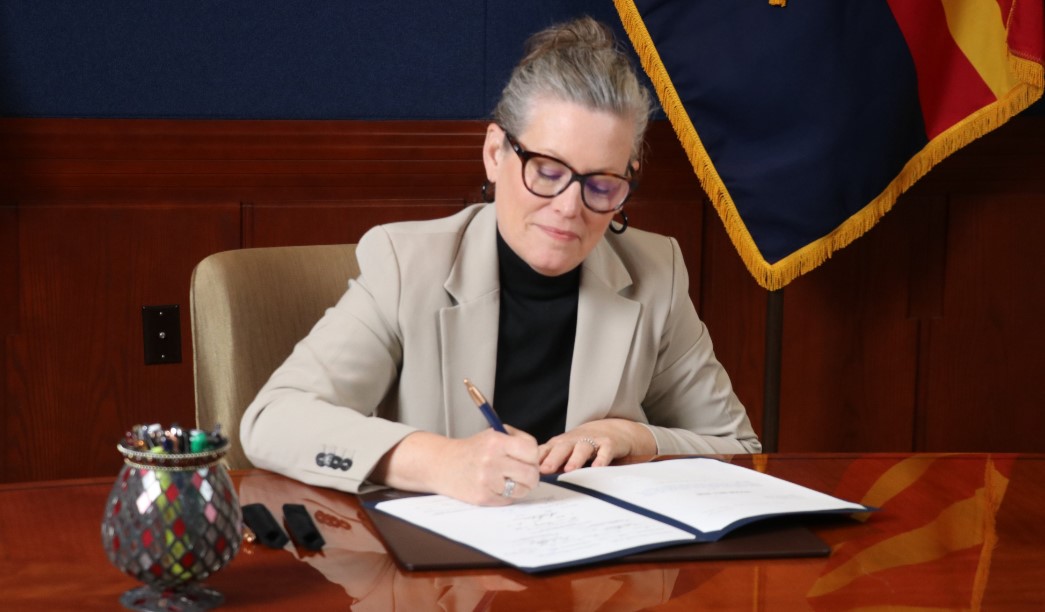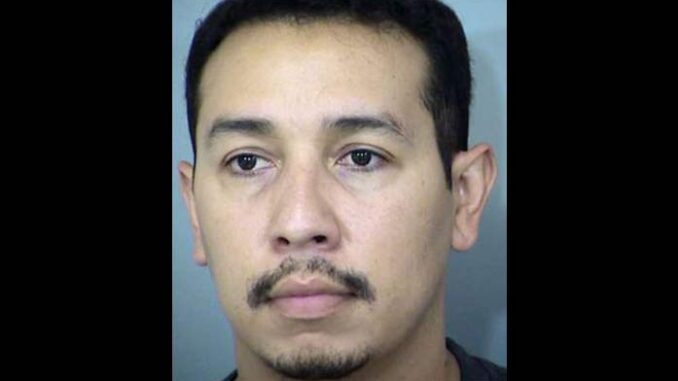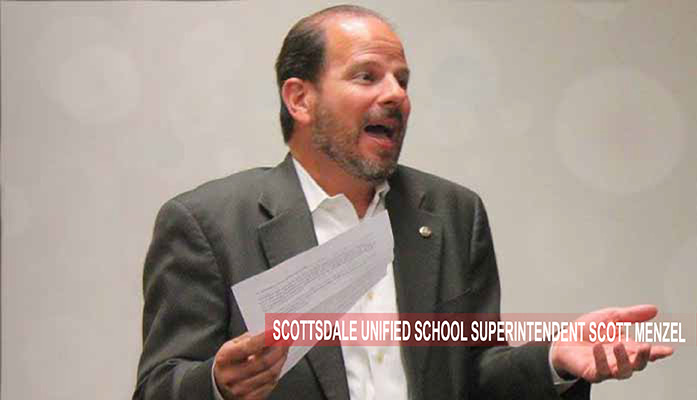
by Daniel Stefanski | May 1, 2024 | News
By Daniel Stefanski |
A bill to enhance efficiency in legislative appointments was signed into law by the Arizona governor.
Earlier this month, Governor Katie Hobbs signed SB 1278, which “prescribes requirements relating to the timeline for the county board of supervisors and precinct committeemen to fill a legislative vacancy, [and] requires the state party chairperson to fill a legislative vacancy if the county board of supervisors fails to fill the vacancy.”
According to the fact sheet for the legislation, SB 1278 “prescribes a timeframe for the county board of supervisors to fill a vacant legislative office by requiring the county board of supervisors to make the appointment within: a) 10 calendar days of receiving the names of the nominees if the Legislature is in session…; or b) 21 calendar days of receiving the names of the nominees if the Legislature is not in session.”
Senator J.D. Mesnard, the sponsor of the bill, issued a statement to mark the success of his proposal. He said, “We’ve had a number of instances this legislative session and last where state lawmakers were either removed or resigned from office for one reason or another. When this happens, business at the Capitol can be brought to a standstill until a replacement has been appointed. The process to appoint a new lawmaker can sometimes drag out and county board of supervisors have taken entirely too long to fill a vacancy in many situations.”
Mesnard added, “My bill, SB 1278, was just signed into law this week and requires government to be more efficient when filling these roles by establishing in statute reasonable timelines and protocols to designate a replacement in a prompt fashion to prevent a lengthy disruption to the legislative process. This new law will ensure the legislature is working as proficiently as possible for the people of Arizona when these situations arise.”
In February, Mesnard’s proposal passed the Arizona Senate with a 27-0 vote (with three members not voting). It was amended and approved in the Arizona House in early April with a 59-0 vote (with one vacant seat). The Senate then concurred with the House’s changes with a 28-0 vote (with two members not voting) before sending it to the Governor’s Office for Hobbs’ decision.
SB 1278 will go into effect 90 days after the end of the 2024 Arizona Legislative Session.
Daniel Stefanski is a reporter for AZ Free News. You can send him news tips using this link.

by Daniel Stefanski | Apr 30, 2024 | News
By Daniel Stefanski |
Arizona homeowners were unable to acquire enhanced protections for their properties thanks to a veto from the state’s Democrat governor.
Earlier this week, Governor Katie Hobbs vetoed SB 1129, which would have “allow[ed] a property owner or the property owner’s authorized agent to request, from law enforcement, the immediate removal of a person who is unlawfully occupying a residential dwelling, outline[d] conditions that determine if a person is unlawfully occupying a residential dwelling, [and] deem[ed] that a person who fails or refuses to surrender possession of the property as directed by a law enforcement offer is committing trespass” – according to the purpose from the Arizona Senate.
In her veto letter to Senate President Warren Petersen, Hobbs explained that the proposed “fails to leverage existing legal mechanisms, respect the due process rights of lawful tenants, and minimize unintended consequences, such as for victims of domestic violence.”
Senator Wendy Rogers, the bill’s sponsor, reacted to the governor’s decision on her legislation, writing, “Criminals are scheming to take over homes that aren’t theirs, posing a threat to the safety of homeowners and infringing on their private property rights. Although we have trespassing laws, it’s often difficult to prove a person is unlawfully occupying a home and can result in a lengthy legal battle. Homeowners testified in committee hearings about their property being severely damaged, the subsequent astronomical costs from these criminals, and consequently, they felt incredibly violated. We should not further victimize homeowners with a time-consuming, cumbersome, and costly removal process.”
Rogers also addressed the governor’s reasoning in her letter, saying, “In her veto letter, Katie Hobbs claims this bill fails to protect the rights of lawful tenants and minimize unintended consequences for victims of domestic violence. Did she read the bill? It addresses illegal occupants, not lawful tenants. That’s precisely the point. This bill has absolutely NOTHING to do with landlord-tenant law and has exemptions for family members and anyone with an agreement to cohabitate.”
The governor’s veto attracted the attention of one of her colleagues from across the country and the political aisle – Florida Governor Ron DeSantis, who said, “The Governor of Arizona just vetoed a bill that we signed here in Florida so that these squatters could be ejected. What kind of a message does that send? You’re saying you can squat in somebody’s house and basically they got to go through a six month process.” DeSantis added, “We’re putting an end to the squatters scam in Florida. While other states are siding with the squatters, we are protecting property owners and punishing criminals looking to game the system.”
Senator Justine Wadsack, a cosponsor of the bill, also weighed in on the action from the Ninth Floor of the Arizona State Executive Tower. She said, “”As a Realtor, I’ve personally encountered a squatter occupying a home I was showing to a client. It was a terrifying threat to my safety, the safety of my clients, as well as to the homeowners. When I called the police, I was told there’s not much they could do. Nobody should ever be allowed to live in and occupy another person’s home without their permission, yet I continue to have constituents reach out to me with these types of stories. I’m proud of the swift and unified response Republican lawmakers made to fight this issue, it’s a shame Governor Katie Hobbs has vetoed yet another piece of commonsense bipartisan legislation.”
Senators Farnsworth, Kavanagh, Kern, Shope, and Representative Gillette – all Republicans – were cosponsors of the legislation.
Daniel Stefanski is a reporter for AZ Free News. You can send him news tips using this link.

by Elizabeth Troutman | Apr 30, 2024 | News
By Elizabeth Troutman |
A former Arizona state senator was sentenced to one year in prison on Friday after being found guilty of one charge of sexual conduct with a minor.
A jury found Otoniel “Tony” Navarrete guilty of sexual conduct with a minor aged 15 or older, a Class 6 felony, in February. His jail sentence will be followed by 10 years of supervised release. He is also now required to register as a sex offender.
Navarrete could be released from jail in less than a year for “good behavior.”
He was acquitted of one count of child molestation and another sexual conduct charge. Had he been convicted of all charges, Navarrete would have faced a minimum mandatory sentence of 49 years in prison. The first-term state senator originally faced a Class 2 felony for molestation of a child, three Class 2 felonies for sexual conduct with a minor, one Class 3 felony for attempted sexual conduct with a minor, and two Class 6 felonies for sexual conduct with a minor.
Navarrete turned down a 60-day sentence followed by 10 years of supervised probation because that deal meant he would have to admit guilt in the crimes, the Arizona Republic reported. He maintained his innocence in statements after the release of the indictment.
Police first arrested 35-year-old Navarrete in August 2021 after Phoenix police received a tip about sexual conduct with a male minor that occurred in 2019.
Navarrete, who billed himself as “passionate about justice,” served as co-chair of the Arizona LGBTQ Legislative Caucus while in the state Senate. He served one term in the state House of Representatives, beginning in 2016, then he was elected to the state Senate in 2018.
Elizabeth Troutman is a reporter for AZ Free News. You can send her news tips using this link.

by Elizabeth Troutman | Apr 29, 2024 | Education, News
By Elizabeth Troutman |
Update: The Scottsdale School Board passed Superintendent Scott Menzel’s contract renewal in a 3-2 vote. Board Members Libby Hart-Wells, Zach Lindsay, and Julie Cieniawski voted to renew the contract while Board Members Amy Carney and Carine Werner voted not to renew the contract.
The Scottsdale Unified School District Governing Board is expected to be asked to renew controversial Superintendent Scott Menzel’s employment contract during its meeting on Tuesday.
Three of Menzel’s biggest allies on the Governing Board, Zach Lindsay, Libby Hart-Wells, and Julie Cieniawski, will not seek reelection and will vacate their seats on Dec. 31. Outgoing boards are usually reluctant to extend employment contracts for administrative positions during an election cycle, but a renewal of Menzel’s contract seems unlikely with any future board.
Arizona Superintendent of Public Instruction Tom Horne called for Menzel’s removal after “unacceptable” comments made by Menzel were revealed last February.
“Critical race theory has no place in Arizona schools,” Horne said at the time. “Superintendent Scott Menzel’s comments are unacceptable. Superintendent Horne joins Scottsdale legislators and parents calling for the removal of Superintendent Menzel.”
Menzel had claimed “white identity” is “problematic.”
“There’s a misperception that educational equity is really only for ethnically and racially diverse districts. But White people have racial identity as well, and in fact [it is a] problematic racial identity that we typically avoid,” Menzel told David Spitzley of the Torchlight in 2019.
Arizona state legislators and parents joined Horne in calling for his removal.
State Sen. John Kavanagh and Representatives Joseph Chaplik and Alexander Kolodin, who all represent Legislative District 3 that includes Scottsdale, wrote an open letter to members of the Governing Board condemning Menzel for “offensive and hateful comments he made in a 2019 interview.”
The Scottsdale Unified School District Governing Board unanimously approved a three-year contract with Menzel in March 2020. The Board unanimously approved a $205,000-plus contract, to run through June 30, 2023.
The Board renewed Menzel’s contract in May 2022 to run through 2025 with his base annual salary increased to $216,000.
Under Menzel’s leadership over the past three years, Scottsdale Unified enrollment has dropped by more than 1,500 students. Science scores have dropped 24%.
Less than 50% of 8th grade students are proficient in math, but 94% of students in the district graduate.
Members of the public can email the board in opposition to the extension at govbrd@susd.org.
Elizabeth Troutman is a reporter for AZ Free News. You can send her news tips using this link.

by Daniel Stefanski | Apr 29, 2024 | Education, News
By Daniel Stefanski |
A bipartisan school tax bill has become law in the State of Arizona.
Earlier this month, Governor Katie Hobbs signed HB 2173, which “revises statutes relating to tax levy calculations for a common school district not within a high school district (Type 03 district), [and] details session law provisions that redirect monies collected by the additional tax in a Type 03 district in TY 2023 to the state General Fund” – according to the overview from the Arizona House of Representatives.
According to a press release from Arizona legislative Republicans, this bill “was introduced after mistakes identified in the current fiscal year caused dramatic tax increases in several rural school districts, most prominently in the Continent Elementary School district in Green Valley.” Due to this bill’s enactment, “elementary-only districts like Continental will no longer pay tuition for these high school students, but rather they will be ‘open enrolled’ in the school of their choice like any other student around the state.”
The three legislators in the district that was particularly targeted by the bill – Republican State Representatives Gail Griffin and Lupe Diaz and State Senator David Gowan – issued statements to cheer on the success of this emergency measure.
“Property tax increases significantly impacted Green Valley residents this year, prompting immediate actions to remedy this situation,” said Representative Gail Griffin. “Despite the complexities involved, collaboration with school finance experts has led to a sustainable solution.”
“We will resolve the issue of overpaid property taxes for these districts in the upcoming budget, Representative Lupe Diaz added. “We have proposed a reasonable resolution to the Governor’s office to provide targeted funding to those rural school districts, so taxpayers receive an equitable reduction in order to pay them back for last year’s overcharge.”
“As soon as we were made aware of these unintended consequences, we swiftly came together to find a solution,” said Senator Gowan. “My amendment on this bill ensures the dollars that should not have been collected will be returned to taxpayers in the form of a deduction on the following year’s property tax. I also made sure the school districts most disproportionally affected in LD-19 were taken care of.”
HB 2173 was sponsored by House Education Committee Chairwoman Beverly Pingerelli.
Daniel Stefanski is a reporter for AZ Free News. You can send him news tips using this link.

by Staff Reporter | Apr 29, 2024 | Education, News
By Staff Reporter |
Peoria Unified School District (PUSD) parents expressed their displeasure over plans to reduce the privacy in several high schools’ bathrooms during this week’s regular board meeting.
The district is planning to remodel one set of male and female restrooms at Cactus High School and Ironwood High School, with the main goals of providing clearer visibility into the restrooms and increasing ADA compliance.
In presenting the proposed plans, Acting Superintendent Kevin Molino explained that students felt uncomfortable with other students using the bathrooms as private hangout spots.
“As we gather feedback, we’ll find a balance between privacy and safety,” said Moleno.
In order to remedy this, the entrances to the new bathrooms would provide a direct line of sight into the main gathering space between the sinks on one wall and the private bathroom stalls on the other.
Corky Haynes, a community member, expressed concern that the students’ privacy wouldn’t be respected — especially the girls.
Teddy Todd, another community member, asked that there be more privacy given to the girls’ restrooms: a narrower entryway view, and a wider and taller divider for the sinks (for washing out garments). Todd also suggested adding doors to the urinals, and transforming the service closet into a private, lockable single-stall bathroom with a sink and the water tank closeted off.
Trina Berg, an Ironwood High School and Peoria Education Association (PEA) President, said that the increased visibility would make teachers’ jobs easier in managing students congregating in bathrooms. Currently, Berg says teachers either have to yell or go into the bathrooms to remove students.
“As a teacher, the restrooms are a big source of behavior issues, because our kids are congregating in there,” said Berg. “Yes, privacy is a thing, but the doors are there, they’re shut.”
Mikah Dyer, an Ironwood High School senior and PUSD board candidate, said that the proposed renovations would improve safety and usability.
“The number one problem I hear about bathrooms in Ironwood is the vaping that’s happening and the overcrowding that’s happening during passing periods during lunches,” said Dyer. “Teachers need accessibility and visibility.”
The proposed bathroom renovations include vape sensors in each stall.
Jeff Toby, a parent of three female PUSD students, said his daughters were uncomfortable with the proposal.
Tiffany Benson, a community member, expressed concern that the bathroom remodels were another step to ending gendered bathrooms. Benson also said that the schools needed to be more proactive in addressing the students who were repeat offenders for bad behaviors in the bathrooms.
Wendy Rose, mother of two current PUSD students, said that the female students she asked were uncomfortable with the lack of privacy in the bathrooms.
Christina, mother of two PUSD students, wondered at the lack of urinals and, like others, the lack of privacy presented by noise issues.
Board member Bill Sorensen said there needed to be a way of gathering more student feedback on the proposal before the district moves forward.
Board member Heather Rooks objected to the policy as another alleged step toward getting rid of gendered spaces.
AZ Free News is your #1 source for Arizona news and politics. You can send us news tips using this link.






